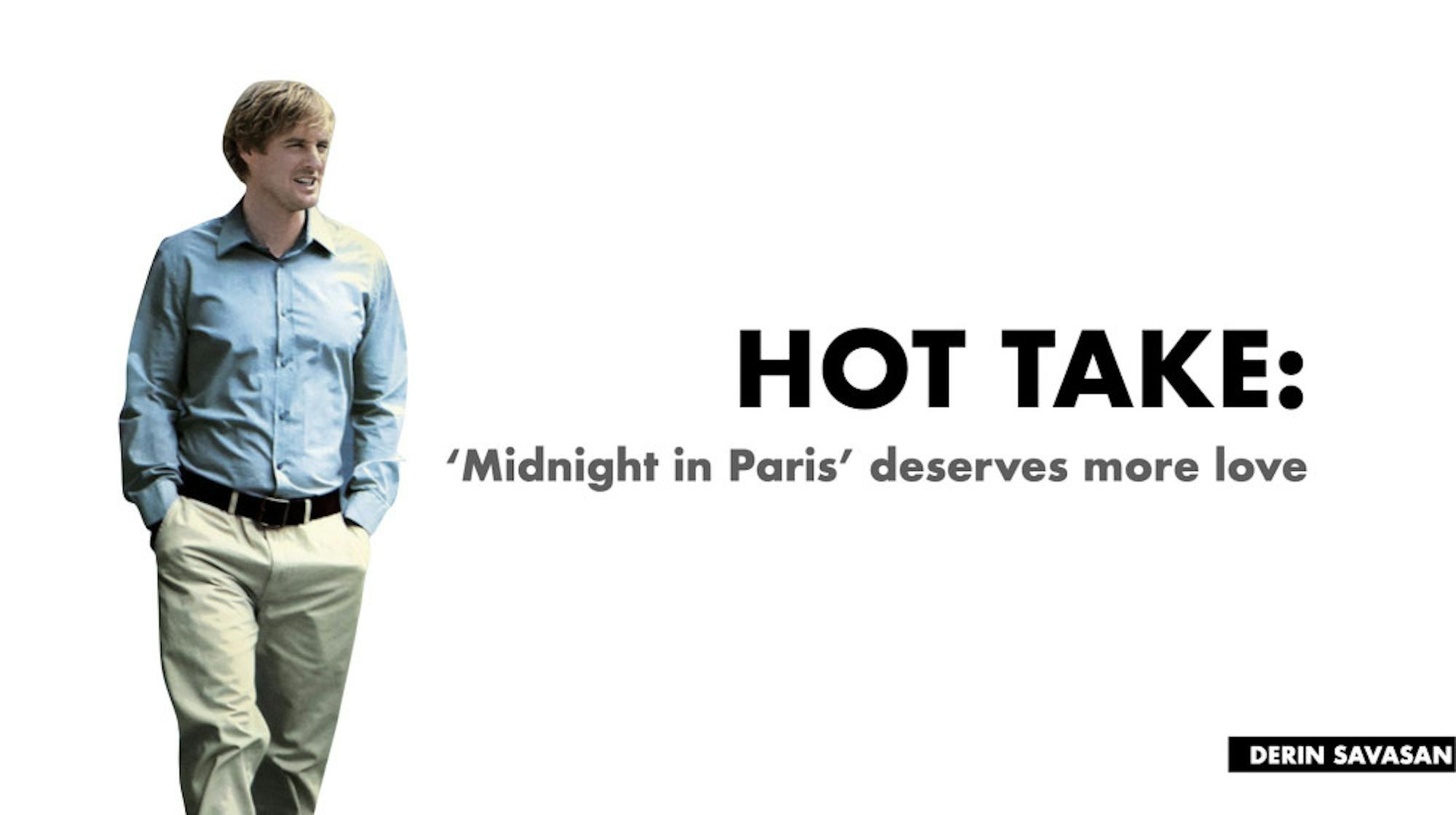“Midnight in Paris” (2011) perfectly captures the human condition — specifically, how and why we seek consolation through art.
For those of you who haven’t watched the movie, “Midnight in Paris” is about a screenwriter named Gil (Owen Wilson) who visits Paris with his annoying fiancée (Rachel McAdams) and her family as he’s trying to finish his debut novel. Beguiled by the city, one night, Gil stumbles upon a magical car one night that takes him back to the 1920s — allowing him to meet his literary heroes, from Picasso to Hemingway. Overjoyed by nostalgia and creativity, he slowly starts drifting away from the present and ultimately ends up staying in Paris and calling off his engagement.
Now, I’m neither a screenwriter nor a person who has time traveled to 1920s Paris. But I understand the way Gil feels and why he seeks comfort in the past. And I’d like to believe that I’m not the only one. Let me explain.
Gil reminds me of the Lost Generation: those who returned to America with a hopeless view of the world after seeing horrendous death and destruction in World War I. Soldiers returned to an America that was more interested in materialism and social status than the complexities of the human struggle. Shortly put, America had become an emotionally barren wasteland.
These men didn’t need suits or mansions. They needed consolation. So, they traveled to Paris — a city overflowing with art and philosophy. There, they came to terms with their pain and alienation through art. A generation of writers like Ernest Hemingway and F. Scott Fitzgerald (among many others) were part of this Lost Generation.
As a creative, Gil, too, finds himself in love with the culture and the history of Paris. His fianceé? Not so much. She’s more focused on luxury boutiques and pseudo-intellectual friendships. When she puts Gil down for his view of the past and wanting to be a novelist, Gil often feels alienated. He yearns for the age of Paris when writers and artists were free to express themselves, a quality he believes is absent in today’s culture. He’s emotionally numb and oblivious to the present.
So, when that car from the 1920s picks him up at midnight and takes him to the period of the Lost Generation, he finally feels at home. For the first time, he can freely ask existential questions and critique art. He no longer feels alone in the world. And over time, he realizes that he feels alienated in the present not because “the times have changed” but because he’s surrounded by the shallow, inauthentic world of materialism — not the art or those who appreciate it like he does.
In essence, this movie is not just an allegory for what happened to the Lost Generation. It’s about what happens to human beings, in general, when the world surrounding us seems hollow and meaningless. It’s about our inherent urge to create or experience art made by others to find comfort — comfort in knowing that we’re not alone.






